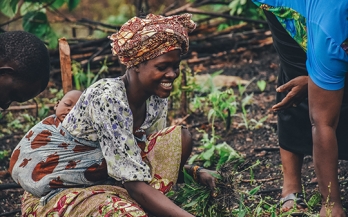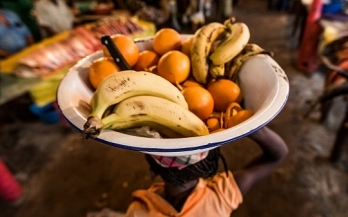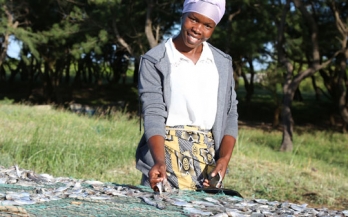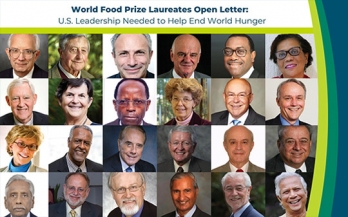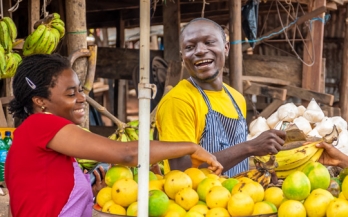BLOG: Over the past eight months we—in our capacity as Action Track Chairs for the UN Food Systems Summit—have received well over 2,000 written submissions from around the world on how to transform food systems so that they can deliver access to safe and nutritious foods for all, in ways that deliver sustainable consumption, use approaches that are positive and regenerative for nature, generate livelihoods and decent work for those who depend on the food system, while promoting equity and building resilience for all.
BLOG: The Worldwide Fund for Nature (WWF) and the Global Alliance for Nutrition (GAIN) have just signed up to a new partnership. WWF aims to stop the degradation of the earth’s natural environment and to build a future in which humans live in harmony, and GAIN to deliver more nutritious food for all people. At face value fundamentally different jobs. Why would they be joining forces? The answer is simple: food systems are failing nature and are leaving billions of people without safe and nutritious food.
The number of people who go to bed hungry was rising steadily prior to the COVID-19 pandemic due to stresses related to climate, inequality and conflict, and now stands at 690 million. The pandemic has supercharged these trends. The latest UN estimates are sobering, with an additional 130 million projected to be suffering from hunger, even before the devastating pandemic numbers we are currently seeing from India and Brazil.
Dubbed a "Peoples Summit", it is open to unprecedented engagement in every country, from every sector, and every constituency. It is also dubbed a "Solutions Summit" with a focus on action. I lead one of the five thematic areas or "Action Tracks" (ATs) on "Ensuring access to safe and nutritious foods for all". There are four other ATs, a Science Group, a Champions Group, 4 cross-cutting Levers and the over 100 Summit Dialogues to date.
Until every child in the world goes to bed nourished properly, we cannot rest. Our food systems are moving us in the wrong directions: hunger levels are rising, undernutrition levels are at severe risk of rising, obesity is increasing, we are off track to meet climate targets, biodiversity is being squandered, not enough decent jobs are being created and community resilience is being undermined.
I love academic papers that use evidence to try and shift stubborn policy perspectives, especially when those policy perspectives seem to be holding back development and hunger reduction. So, it is no surprise that I like the recent paper by Liverpool-Tasie et al. (2020) on persistent myths that are held about African food supply chains.
The calendar is about to turn the page over to a new year and that new year brings hope for a world currently gripped by a pandemic that has wreaked havoc for months. COVID-19 has made 2020 the year we wish we could forget but never will. With the roll-out of
vaccines, the end of the pandemic and its related global disruptions seem to be in sight. But not everyone will be able to breathe a sigh of relief.
As we draw to the end of 2020, COVID-19 rages on; hunger numbers are on the increase; and we are not on track to meet the 1.5C Paris target to limit global warming. According to the Johns Hopkins COVID-19 Dashboard, 72 million people have been infected with the novel coronavirus and 1.7 million have died. And counting. According to the IMF, the measures taken to combat the virus have led to GDP declines of around 4-10%, depending on the country.
Ensuring markets provide enough nutritious and safe food to those living in poverty in low income countries is an urgent priority. Many in such markets across the world lack access to affordable foods that are safe and rich in the nutrients needed to sustain life and livelihoods.
In 2021 we nutrition champions are blessed with not one, but two summits to advance nutrition outcomes. The UN Food Systems Summit (FSS) will take place in September in New York and the Nutrition for Growth Summit will be held in Tokyo in December.
